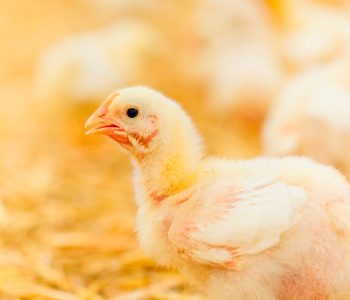Bacillus spp. hold a clear advantage over other probiotics due to their ability to sporulate and proliferate within the gastrointestinal tract (GIT) of animals.
The use of antibiotic growth promoters (AGPs) in animal diets has been a cause for concern due to the emergence of antibiotic-resistant bacteria, which are associated with human and animal diseases.This has led to AGP bans in many countries around the globe.
| Excessive antibiotic use implies the emergence and transfer of gene resistance between bacteria. It also causes an imbalance in normal microflora and a reduction of beneficial intestinal bacteria. |
PROBIOTICS
Therefore, probiotics are becoming increasingly popular as considerable safe alternatives to replace and reduce antibiotics as a viable solution to save the livestock sector, especially for young animals such as broilers and piglets.
Probiotics are defined as a preparation containing known viable or inactivated bacteria and are generally recognized as safe. It is also considered that the administration of probiotics or direct feeding microbes (DFMs) in adequate amounts, confers “health benefits for the host.”
Probiotics occupy an important place due to their beneficial impact on host body weight, growth performance, improved health profile, as well as intestinal immunity through the regulation of metabolism and bacterial composition in this area.
Before a probiotic product can be included in poultry feed, it is essential to assess its stability (viability and growth) under the simulation of harsh gastrointestinal tract (GIT) conditions.
A probiotic must retain less than 1 x 106 CFU g-1, for its inclusion level(Millette et al., 2013).
BACILLUS
Morphologically, Bacillus species have rod-shaped cells with square or rounded ends between 0.5 x 1.2 to 2.5 x 10 ÿm, which present themselves individually or in chains. The stability of the chains determines the shape of the colony, which may differ from strain to strain.
[register]
This characteristic makes them thermosets for storage and processing (i.e. extrusion and granulation), with resistance to extreme temperatures of up to 113 °C for 8 min.
It has been confirmed that Bacillus spores survive at low pH values within the stomach, as well as withstanding the action of bile salts, the harsh conditions of the host’s GIT, high pressure and caustic chemicals. Which makes them suitable for their distribution and marketing.
Bacillus species possess several capacities, such as: the secretion of beneficial enzymes (amylase, protease, cellulase, lipase, xylanase, phytase and keratinase), the production of antimicrobial molecules and beneficial metabolites through the modulation of intestinal microflora.
In addition, to the aforementioned qualities, the sporulation capacity of Bacillus spp. enhances their survival rate under various environmental conditions compared to other bacterial species that do not form spores(heat tolerance, resistance against low pH of the gastric barrier and greater viability during storage)
EVALUATION
The main focus was based on the effect of probiotics on poultry nutrition.
.
Figure 1. Effects of Bacillu spp. as a probiotic source in poultry nutrition
Bacillus species are well known producers of antimicrobial peptides such as bacteriocins,which are small ribosomal peptides with the ability to inhibit the growth of pathogens.
The administration of probiotics in poultry, and more specifically in broilers has generated positive impacts on: growth yield, feed efficiency, improvement of intestinal histomorphology, immunity status, increased resistance to diseases and an increase in beneficial microbiota.
As a direct effect, Bacillus probiotics can act on pathogenic bacteria such as E. coli, Salmonella, Clostridium and Campylobacter, inhibiting their growth and population numbers within the animal intestine (Luise et al., 2022). Contributing to prevent or reduce the incidence of infection.
Studies have shown that the inclusion of Bacillus spp. improves overall gut health and growth performance in broilers.
Literature data shows the efficacy of Bacillus as a probiotic and supports its potential use as a feed additive that can contribute to the reduction of antibiotic use within the poultry industry.
Source:
You may also like:
Cinnamon: a natural feed additive for broiler health
[/register]
